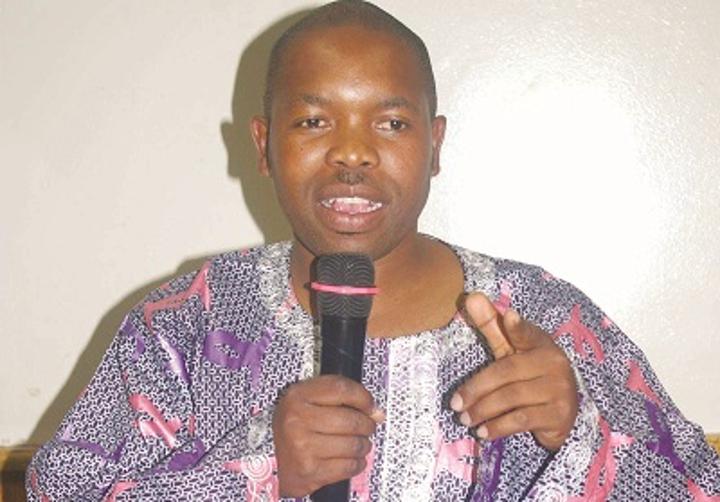Africa-Press – Lesotho. Growing up he wanted to be an electrical engineer but a low pass mark in mathematics meant he couldn’t pursue that dream. However, the now chief executive officer of the Private Sector Foundation Lesotho (PSFL) Thabo Qhesi says he couldn’t be happier with the career he opted for instead.
The outspoken CEO says his main responsibility is to facilitate and promote public-private dialogue as well as investment promotion in collaboration with key stakeholders.
The PSFL mission is to facilitate sustained dialogue between government of Lesotho and organized business and promote the productivity and competitiveness of the business sector and entire economy of Lesotho.
Its vision is to be the leading apex body of the organised private sector and national focal partner in policy advocacy and dynamic private sector development.
Qhesi says since being at the helm of the PSFL it has come to his attention that a lot of small, medium and micro businesses are faced with a number of problems that include among others, lack of business linkages due to the inadequate enforcement of the new MSMEs and Industrial policies, as well as access to finance.
“When it comes to business in Lesotho most Basotho fall out of the line because of the inaccessibility to key information that can assist them to make proper decisions and also the absence of technical support due to weak trade support institutions,” he says.
Qhesi says the PSFL is aware of the challenges facing the business community in this country. He believes large state enterprises can help the small businesses and private sectors to overcome these challenges.
“Among the issues that constitute to critical areas of business in the country include late payments by debtors, cross border trade as some borders are not commercialized, no enabling environment through policies and legal framework and infrastructure due to poor urban planning.
”
“For us to overcome this instances we need entities like Lesotho National Development Corporation (LNDC) and Basotho Enterprise Development Corporation (BEDCO) to have tool kits as well as extension officers that provide business counselling, and also business associations should be empowered to play complementary role of LNDC and BEDCO.
” Qhesi further says the PSFL is currently engaged with government on investment climate reforms that he hopes, would eventually address these issues.
His advice to people running businesses in the country to join business associations so that their voice could be stronger to influence policies and other business related matters.
Qhesi joined the PSFL in October 2011, two years after it officially opened doors back in 2009. Under his belt the PSFL has achieved so much since its launch and Qhesi narrates some of them.
“In terms of legislative we have successfully lobbied for the enactment of the Land Act. PSFL is represented in the Land Administration Authority (LAA) Board. The Foundation further lobbied effectively for amendments to the trading enterprises regulations specifically to protect indigenous businesses.
In terms of policy making, he says, the Foundation lobbied for the development of Public Private Partnership (PPP) policy and World Bank technical assistance had been sought to develop a policy regulatory framework for that to happen.
It was emphasized that the PPP should target the empowerment of indigenous businesses. “The Companies Bill has been presented to Parliament and PSFL was permitted to make final presentations to the relevant parliamentary portfolio committee. The Stamp Duty requirement in registering companies has also been removed,” he says.
In terms of service delivery, all government offices which provide services to the private sector started opening throughout the launch period and an electronic clocking system was introduced in three government departments as part of the pilot programme.
“Empowerment of business people through the consultations on the business opportunities brought by Phase II of the Lesotho Highlands Water Project had resulted in the Private Sector positioning itself to benefit through consortiums and also through the efforts made by the PSFL Council, National Abattoir resumed its operations,” he further says.
“The PSFL also signed a MoU with the Durban Chamber of Commerce and Industry which seeks to increase cooperation between the two organizations.
The MoU which was signed back in 2014 signified that the two parties intend to jointly pursue the achievement of increased trade and business activity between their members and or stakeholders, as one of their objectives.
“Other objectives would be the identification of collaborative projects from which each of the parties will benefit and the parties’ respective cities and countries will also derive economic advantage and also transferring skills and expertise where appropriate,” Qhesi says.
Having so much in-depth knowledge about entrepreneurship and small businesses couldn’t have come on a silver platter for Qhesi. He actually practiced it while still young and still does event today, though on a more consultative level.
It all started in the early 1990s while he still at Khubetsoana High School he used to sell buns from Blue Ribbon. “This is where I developed an interest of doing business.
When I arrived back home 1997 after I completed my studies in South Africa and couldn’t get employment. I quickly turned to my entrepreneurial skills and began to sell household detergents in various places around the country,” he says.
Born and raised at Ha-Mabote, Maseru, Qhesi early education was acquired at Ntloana-Tsoana, TY LEC, and Mejametalana primary schools, before proceeding to Khubetsoana High School.
He then enrolled at the South African Institute of Management (SAIM) and obtained Marketing Management diploma and got an award for being the best achiever in the programme.
“From there I studied with the Trade Policy Training Centre in Africa (TRAPCA) and also got an award for being the best performer in my studies of International Trade Policy and Trade Law,” he says proudly.
In 2004, he facilitated the establishment of Mabote Women Empowerment Network which ended up having the membership of 763. This association has assisted many people in various areas that include training in handicrafts and tapestry, mushroom farming and shoe-making.
Since joining the PSFL, Qhesi has been instrumental in many other start-up projects and continues to do so. However, he says, PSFL’s mandate is too big with the little resources that it gets from government and international bodies such as the World Bank.
Even though, the PSFL’s presence continues to be felt among entrepreneurs, but very little is known to the public and other organisations about its existence.
Qhesi says he aims to use all platforms and media channels like social networks and print, as well as voice media, to make the organization heard and become more visible.
For More News And Analysis About Lesotho Follow Africa-Press






